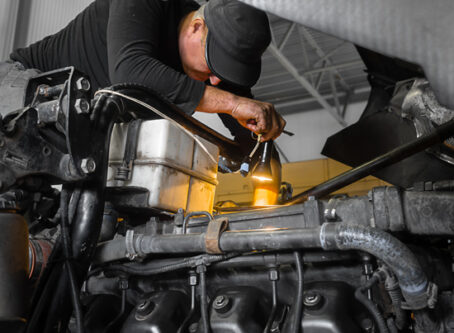Oregon trucking firm settles for $1.5M in California wage suit
An Oregon trucking company has agreed to settle for more than $1.5 million in a California class action wage lawsuit filed by truck drivers.
On April 12, Tualatin, Ore.-based Reddaway, owned by YRC Worldwide, agreed to settle for more than $1.5 million in a lawsuit that involves more than 1,000 truckers. If approved by the court, the average payout for a class member will be $726.40, with a maximum payout of $1,742.40. Named plaintiffs will receive an incentive award of $20,000 each and attorneys can collect up to a third of the settlement, or approximately $500,000.
In November 2017, Mario Barrios and Saul Montes, on behalf of 1,170 other Reddaway drivers, filed a lawsuit against the company in the Central District of California, claiming it violated California state wage and hour laws. Among the allegations were failure to provide meal/rest breaks, failure to provide accurate itemized wage statements, failure to timely pay wages and failure to reimburse expenses.
According to the lawsuit, drivers were forced to skip meal breaks since they were required to remain with their trucks when loaded. However, Reddaway automatically deducted 30 minutes of pay each day for meal breaks. Consequently, the lawsuit alleges the company failed to accurately identify total hours worked.
California Labor Code Section 512 requires a 30-minute meal period after working more than five hours. For work periods longer than 10 hours, an employer is required to allow a second 30-minute meal break. If work periods are longer than 10 hours but less than 12 hours, the second meal break can be waived only if it is mutual between the employee and the employer and the first meal break was not waived.
An “on duty” meal period is allowed when the nature of the work of the employee prevents the employee from being relieved of all duties. In those situations, written consent must be given. Reddaway drivers gave no such written consent. Drivers are entitled to recover one hour of pay for each day a meal period was not provided.
Similar laws in California apply to rest breaks as well. Employees are entitled to a net rate of 10 minutes of rest time for every four hours worked. Like missed meal breaks, drivers can receive one hour of pay for each day rest periods were not provided.
Furthermore, the lawsuit alleges that Reddaway failed to reimburse drivers for the use of their personal cellphones required for daily duties. Attorneys for the drivers referred to a California labor code that states “an employer shall indemnify his or her employee for all necessary expenditures or losses incurred by the employee in direct consequence of the discharge of his or her duties, or of his or her obedience to the directions of the employer.”
Drivers also claim Reddaway did not maintain time records showing when they began and ended each work period, meal periods, split shift intervals and total daily hours worked in itemized wage statements. Reddaway is also accused of not showing all deductions and reimbursements from payment of wages and accurately reporting total hours. Per California law, each driver can receive up to $4,000 each for these record-keeping violations.
Lastly, former drivers who left voluntarily or involuntarily claim they either never received due wages or received them in an untimely manner. California requires an employer who discharges an employee to pay compensation due immediately. Those employees who leave voluntarily are to receive due wages no later than 72 hours of their last day. If an employee gives the employer a notice of their leaving at least 72 hours in advance, the employee is entitled due wages on their last day of work.
According to its website, Reddaway was founded in Oregon City in 1919. Formerly known as USF Reddaway, the company provides direct, regional delivery in 12 western states and one Canadian province: Arizona, California, Colorado, Idaho, Montana, Nevada, Oregon, Utah, Washington, Wyoming and British Columbia. Reddaway owns 4,500 trailers and 1,400 tractors. YRC Worldwide acquired the company in 2004.









